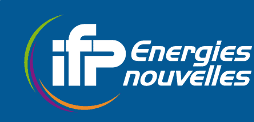Optimization for engine calibration
Résumé
Nowadays, automotive manufacturers are submitted to strong constraints in engine calibration such as: low fuel consumption, emission-control legislation and driver requests for driving comfort and performances. These constraints lead to an increasing complexity of the engines and thus an increasing number of parameters to be tuned, making the empirical engine calibration by a scan of parameter values impossible at engine test-bench. New methodologies in automated engine calibration based on statistics and optimization have emerged in order to limit the number of experimental tests to be run. The optimization problem of engine calibration consists in the determination of engine tuning parameters that minimize the cumulated fuel consumption and pollutant emissions on a driving cycle generally associated with legislation norms. This cycle is decomposed in a set of stationary operating points of the engine characterized by its speed and its torque (the transient behaviors of the engine are not taken into account in the stabilized calibration). Then, the optimal tuning parameters of the engine should be defined for each operating points, the functions defining these parameters on the whole engine operating domain are called the engine maps. These two-dimensional optimal engine maps are then integrated in the engine control unit in the vehicle. We illustrate the difficulties associated with this application and propose adapted optimization methodologies: LoLiMoT models for engine map parameterization in order to handle intrinsic constraints on the map regularity, multi-objective optimization method based on CMA-ES approach. Finally , application on real dataset obtained at IFP automated test-bench for a diesel engine are presented. 2. Keywords: Engine calibration, LoLiMoT, Multi-objective optimization, Evolutionary algorithm 3. Introduction Engine calibration consists in fulfilling the engine tuning maps that are used in engine controls of the vehicle, i.e. in defining the optimal tuning of parameters used by engine control strategies. Due to the highly increased number of these parameters (especially for diesel engines but spark ignition engines are following the same trend) and the reduction of the development schedule available for the calibration process, manual tuning of engine parameters is now replaced by mathematically assisted calibration process. Such a process is based on the design of experiments with associated modeling methods, in order to reduce the number of tests used to build engine response models depending on engine control parameters, and optimization techniques to determine the optimal settings within the model definition domain. In order to perform the tests in a more productive way, these mathematical techniques are generally associated with test automation, requiring well controlled measurement methods and reliable test equipments. This paper describes the optimization methods developed for this application and illustrates their effectiveness on a real case of a common rail diesel Engine. The first section introduces the classical steps of the calibration process and discusses the associated difficulties. In the second section, we propose the Multi-Objective Covariance-Adaptation Evolutionary Strategy method for solving the optimization problem associated with a given engine operating point defined by the engine speed and the engine load. In the third part, an integrated approach is proposed in order to directly optimize the engine maps on the whole driving cycle (associated with legislation norms) instead of the individual optimization of each engine operating point. 4. Engine calibration 4.1. Sketch of the engine calibration process The emission calibration workflow is classically divided into four steps: 1. a preliminary phase consisting in choosing a sample of operating points (referred to as OP in the 1
Domaines
Sciences de l'ingénieur [physics]
Origine : Fichiers produits par l'(les) auteur(s)
Loading...
